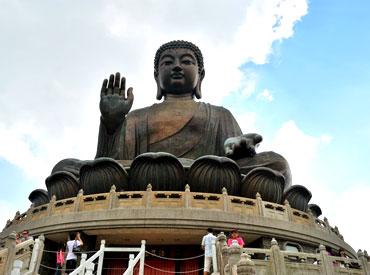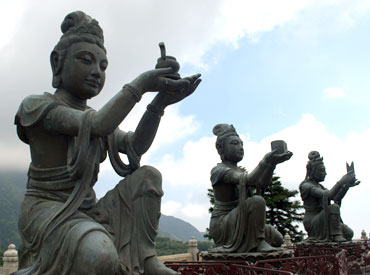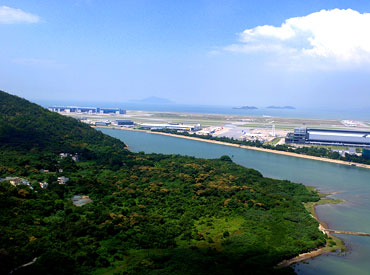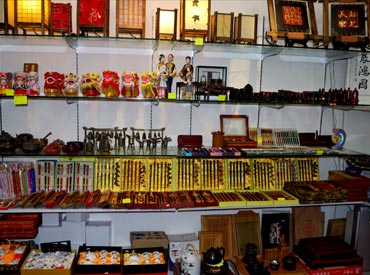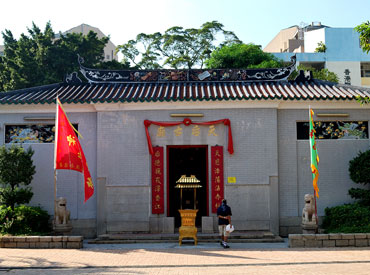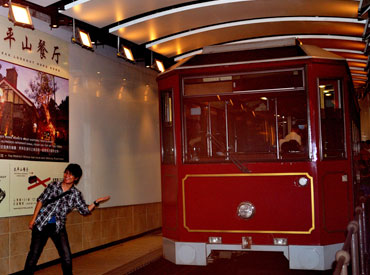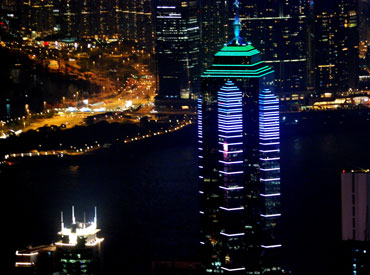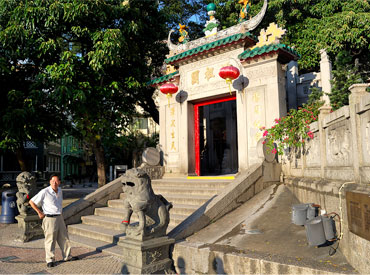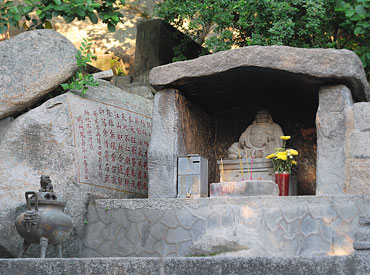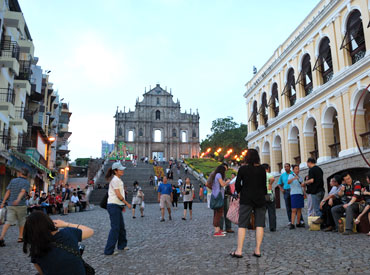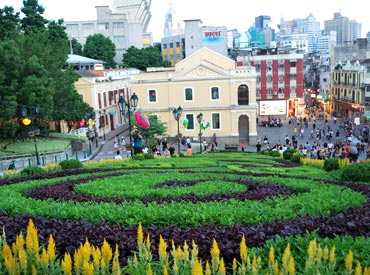 | « Back to article | Print this article |
Travel: Five reasons to visit Hong Kong and Macau
Think Hong Kong and Macau and the images that flash in your mind are the glittering lights of an expansive skyline, the lure of the casinos, never ending shopping markets, laser shows and tourist attractions like Disneyland and Oceanworld.
However, I was in for a surprise when I visited these island states. I had imagined a bustling dynamic financial capital with all the trappings of a modern city. And yet, as I walked around it, I discovered a quaint town with clusters of islands and peninsulas, retaining a charm of its own.
The city-state as it is often referred to, was a perfect melange of the east and west, a pot pourri of tourist attractions and hidden spots and would often transform itself into small fishing villages with floating markets.
There are many reasons why one would visit these two Chinese territories, but here are my recommendations...
Click on NEXT to read on...
Lakshmi Sharath is a travel writer and blogger from Bangalore and she blogs at http://backpakker.blogspot.com.
Want to share your travel story and pictures? Simply write in to getahead@rediff.co.in (subject line: 'My Travel Story'), along with pictures of the destination you're writing about. We'll publish the best ones right here on rediff.com!
Travel: Five reasons to visit Hong Kong and Macau
1. Tian Tan Buddha statue in Lantau Island
Nestled in one of the most beautiful and largest islands of Hong Kong is a 34 metre tall Big Buddha in bronze, smiling at the vast landscape around the island.
A cable car ride above the sea takes you towards the Ngong Ping Plateau of the Lantau Island, where you can get a glimpse of the Buddha from the sky.
Travel: Five reasons to visit Hong Kong and Macau
Climbing more than 260 steps to reach the statue may be an uphill task, but it is worth the effort .It is also believed to house one of the relics of Gautama Buddha.
The century old Po Lin Monastery located near the statue is dedicated to the three forms of Buddha – the present, the past and the future.
Travel: Five reasons to visit Hong Kong and Macau
However the island itself is a showstopper. Ringed in by mountains, it is located at the mouth of the Pearl River and was once part of the ancient trade routes.
Colonised by both the Portuguese and the British, Tai Han Shan as it was earlier known as was once the haunt of pirates and is today filled with forts and fishing villages.
Travel: Five reasons to visit Hong Kong and Macau
2. Stanley Market
The montage of shops selling souvenirs, paintings, artifacts, silks and all sorts of curios in tiny lanes of this historic town lure many tourists here .But there is more to Stanley than just its markets.
The beaches here are bustling with water sports and the entire waterfront is dotted with restaurants and bars. Walk around the town and you would hear stories of war or local legends of pirates.
Travel: Five reasons to visit Hong Kong and Macau
My personal favourite is the quiet 18 century temple, believed to be the oldest temple in Hong Kong, dedicated to Tin Hau, the Queen of Heaven and the Goddess of the Sea.
While the official board outside the temple says that it is built by "the sea faring people of Stanley "locals tell you that it is attributed to a notorious pirate, Cheung Po Tsai.
As you enter the temple, you notice a rather unusual display – a glass frame mounted with the skin of a dead tiger. A small note says that the tiger was shot by an Indian policeman, Mr. Rur Singh in front of Stanley Police Station way back in 1942.
Travel: Five reasons to visit Hong Kong and Macau
3. The Victorial Peak
Taking a tram right up to the Peak of Hong Kong is a great way of exploring the heights of the island. The funicular tramway that started way back in the 19 century goes all the way up 1200 feet and very often you would find the skyscrapers leaning against you as you journey uphill.
The distance is about a kilometre and a half as it climbs up 45 degree from Central District to The Peak.
Travel: Five reasons to visit Hong Kong and Macau
From the Peak Tower Sky Terrace, you can see a 360 degree view of Hong Kong - the glittering skyline, the harbour lights, the mountains and the plateaus. I personally prefer the night view to the day, but then nothing stops you from going there twice.
The Peak itself is filled with historic tales and it was believed to be a 19 century signaling post for cargo ships that entered the port.
The rich and famous who lived there used to be carried uphill through sedan chairs and palanquins until the tramway opened up in the 19th century. It is today a tourist attraction with shops, restaurants, galleries and museums vying for space.
Travel: Five reasons to visit Hong Kong and Macau
4. The A-Ma temple at Macau
As you take the ferry to Macau from Hong Kong, the casinos are the first to beckon you. However, a visit to old Macau is highly recommended.
The 15 century A-Ma temple which lent its name to Macau, built high up on a cliff is a wonderful way to begin your journey.
Dedicated to the Goddess of the Seafarers and Fishermen, Matsu or Mazu, the shrine offers you beautiful views of the sea and it is just peaceful to sit here and watch the ships go by.
Travel: Five reasons to visit Hong Kong and Macau
When the Portuguese landed here, they had no idea about the fishing hamlet. Locals told them the place was called "MaaGok" referring to the A-Ma temple and the name remains till date.
The temple is rather huge with several pavilions and halls and is filled with lores and legends.
Travel: Five reasons to visit Hong Kong and Macau
5. The Ruins of St Paul's
You do not go to Macau looking for a bit of Europe there. But then, old Macau which was once a Portuguese colony is rather reminiscent of the early 16 century.
The World UNESCO site - Historic Centre of Macau includes the imposing Ruins of St Paul. A college and a cathedral was built here in the 16th century and was later destroyed by a fire.
Five reasons to visit Hong Kong and Macau
The imposing facade with intricate carvings is a fusion of Jesuit and Oriental art, such as the sculpture of a woman stepping on a seven headed hydra, described in Chinese as a dragon.
One can climb the staircase leading to the top of facade to see more images carved on it. While many tourists still throw coins from top for luck, several flock to the Senado Square and the Fortress located close by.
Want to share your travel story and pictures? Simply write in to getahead@rediff.co.in subject line: 'My Travel Story'), along with pictures of the destination you're writing about. We'll publish the best ones right here on rediff.com!

